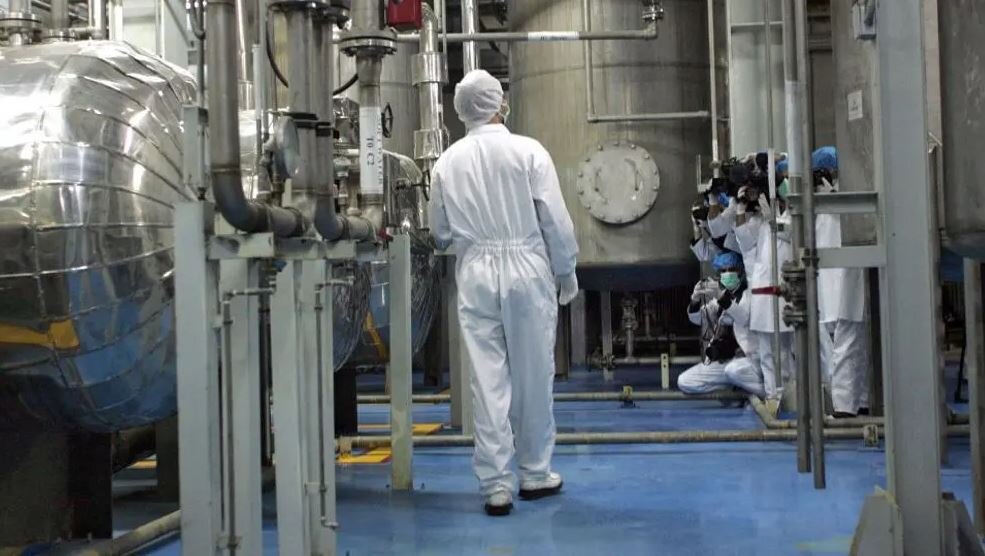Sanctions snapback will be met with firm response, Iran warns Europe

TEHRAN – Iran's UN Ambassador Amir Saeed Iravani issued a strong warning to European JCPOA signatories, threatening a firm response to any attempt to reinstate UN sanctions.
In a letter to the UN Secretary-General and President of the UN Security Council Iravani said “Any threats to invoke the so-called ‘snapback’ are counterproductive and will provoke a firm response from Iran.”
The snapback mechanism outlined in UN Resolution 2231 permits permanent members of the Security Council and Germany to reinstate UN sanctions if Iran violates its JCPOA obligations. The U.S. no longer retains the authority to trigger the mechanism as it has left the nuclear deal.
Iravani's warning, similar to recent statements by other Iranian officials, reflects Tehran's waning tolerance for Western non-compliance with the JCPOA and its simultaneous demands on Iran. Some officials, including Deputy Foreign Minister Kazem Gharibabadi, have said that leaving the Non-Proliferation Treaty (NPT) would be an option if the snapback is triggered.
The 2015 JCPOA, signed by Iran and the P5+1 (US, UK, France, Germany, China, and Russia), aimed to limit Iran's nuclear program in exchange for the lifting of sanctions. However, the U.S. withdrawal from the agreement in 2018 under President Trump led to the reinstatement of sanctions. European nations, despite officially staying part of the deal, have proven unable to offset the debilitating effects of these sanctions; in some cases, they have even added their own bans.
In his address, Iravani rebutted the allegations made in a prior letter from the E3. “The Islamic Republic of Iran categorically rejects the claims in the E3 letter regarding Iran’s alleged non-compliance with its commitments under the JCPOA,” he wrote, adding, “Any allegation regarding Iran’s implementation of its JCPOA commitments is fundamentally flawed when divorced from the full context of the U.S. withdrawal. Such a claim ignores Iran’s sustained efforts to uphold the deal despite persistent provocations and violations by the U.S. and E3/EU, rendering it arbitrary and devoid of substantive validity.”
Iran began to scale back on some of its JCPOA commitments in the middle of 2020, several months after Trump began its so-called “maximum pressure campaign” against the country.
Europe’s blame game
In a joint statement published on Tuesday, the E3 repeated its accusations against Iran. “We, the governments of France, Germany, and the United Kingdom condemn Iran’s latest steps, as reported by the IAEA, to expand its nuclear program to significantly increase the rate of production of uranium enriched up to 60% at the underground Fordow facility”.
“We are also extremely concerned to learn that Iran has increased the number of centrifuges in use and started preparations to install additional enrichment infrastructure, further increasing Iran’s enrichment capacity,” the European Troika claimed.
The statement ignored the fact that Iran's increased uranium enrichment and use of new centrifuges followed the E3's push for an anti-Iran resolution at the International Atomic Energy Agency (IAEA) last month. Tehran had offered to slow enrichment if the resolution was dropped.
During a phone call with IAEA’s Director-General Rafael Grossi, Iran’s foreign minister said his country would take more such steps if Europe’s unconstructive behavior continues. He said the resolution Europe passed at the UN nuclear watchdog’s Board of Governors in November prevented Grossi from harvesting the results of his earlier visit to Iran.
“While we will not hesitate to retaliate, we are still prepared and willing to continue constructive cooperation with the IAEA within relevant technical frameworks,” Abbas Araghchi declared.
Grossi said the IAEA wants to engage in “serious interaction” with Tehran. He seemingly refrained from commenting on Europe’s host of anti-Iran actions.
